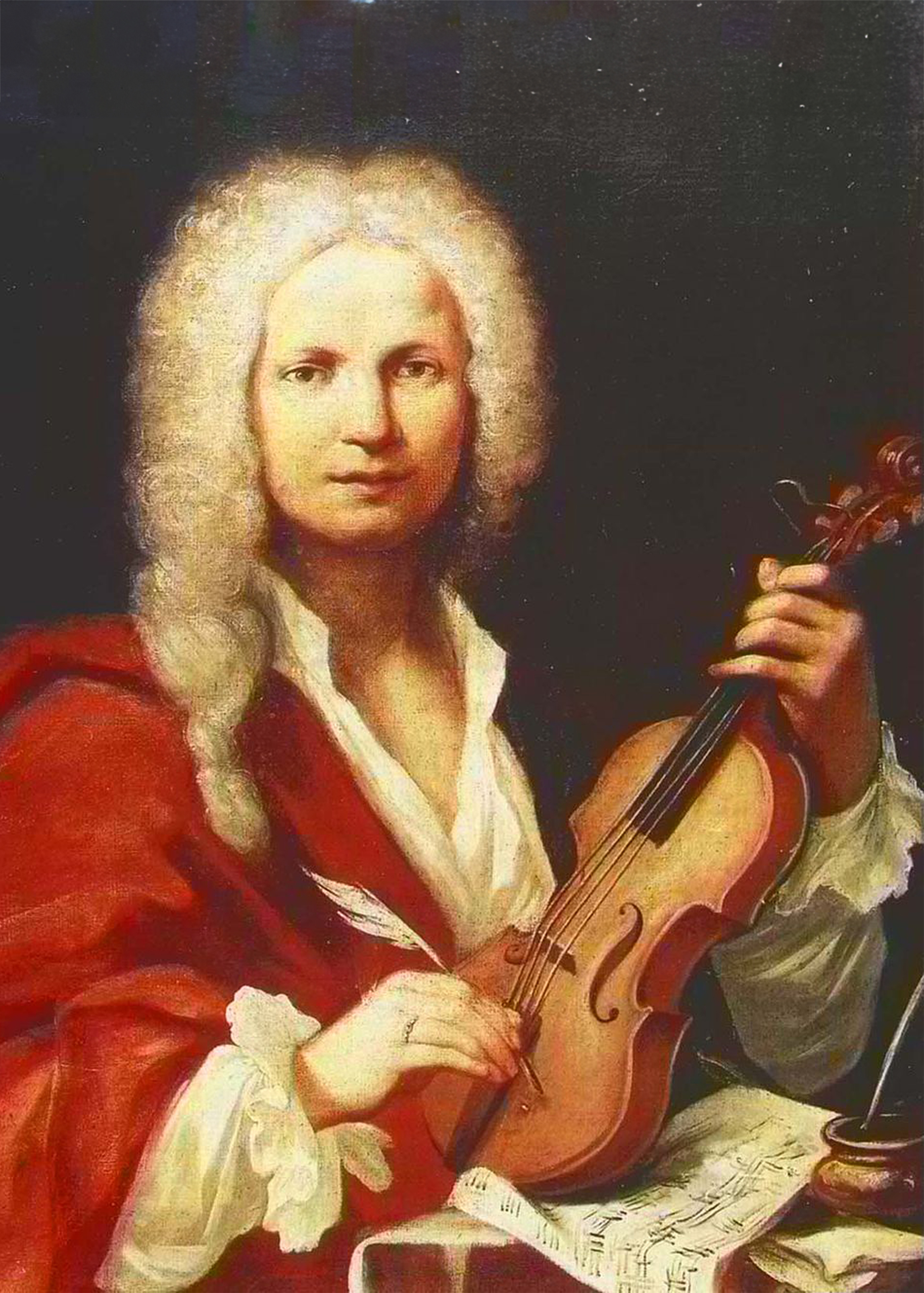Composer | ANTONIO VIVALDI

A major composer of the Baroque era and virtuoso violinist, Antonio Lucio Vivaldi was born on 4 March 1678 in Venice, learning violin performance from his father, Giovanni Battista Vivaldi, and touring from a young age.
Vivaldi would find employment with the Ospedale della Pietà, an orphanage and music school in Venice, where he would serve as maestro di violino (master of violin) and soon be regarded as a notable technical violinist as well as composer. His early compositional successes, primarily including collections of sonatas for violins and basso continuo, would contribute to his eventual promotion to maestro de’ concerti (music director) in 1716. The following year, he was offered employment by Prince Philip of Hesse-Darmstadt, governor of Mantua in northwest Italy, producing several operas and writing his famous Four Seasons series of four violin concertos over the course of the following few years.
At the height of his popularity, Vivaldi was frequently commissioned by European royalty and nobility; in 1725, he created the cantata Gloria e Imeneo in celebration of the marriage of Louis XV. Several years later, he would meet Holy Roman Emperor Charles VI, to whom Vivaldi’s Opus 9, La Cetra, was dedicated, and this chance meeting would lead to a knighthood and invitation to Vienna. He traveled to Vienna and Prague with his father in 1730 to present his wildly popular opera Farnace, and would collaborate with Italian authors Pietro Metastasio and Carlo Goldoni on later operas. The death of Charles VI in 1740, however, would lead to a loss in steady income and eventual poverty for Vivaldi. He died on 28 July 1741 of “internal infection,” and while much of his work has since been lost, recent rediscovery efforts have led to renewed popularity.